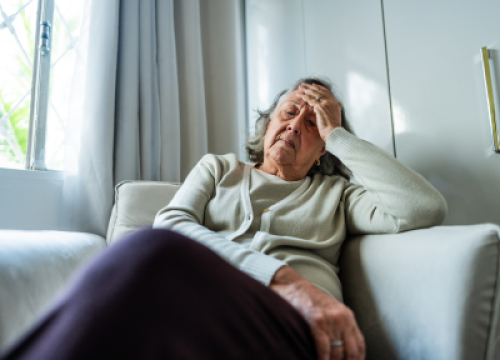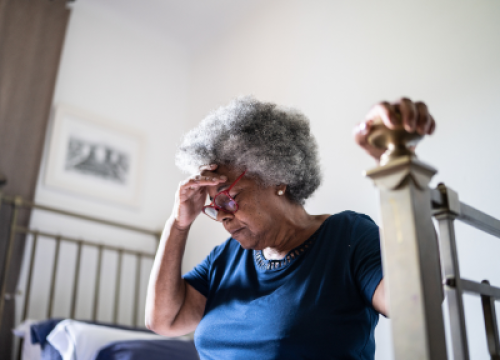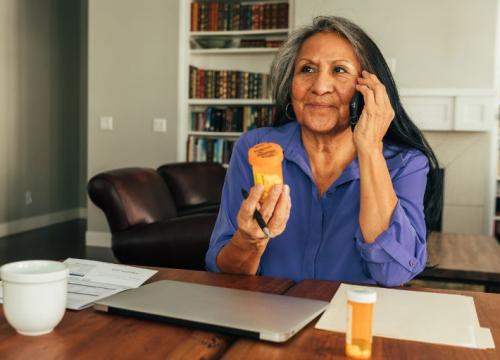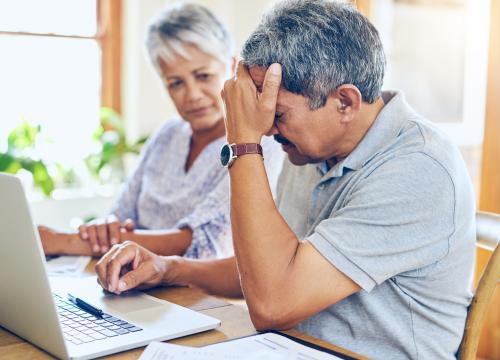Managing "Off" Time in Parkinson's
“Off” Time – periods when the effects of medication (typically levodopa) wear off and symptoms return or worsen.
"Off" time in Parkinson’s can include:
- Early morning “off,” before the first dose kicks in
- Middle-of-the-night “off” when the evening dose wears off
- Unexpected “off” not related to when you take your medications
- “Off” after a big or protein-rich meal
- Delayed “on” due to constipation or slow digestion (these can affect how medication works)
- Dose failure when a single medication dose does not work at all
Medications like levodopa, commonly used for Parkinson’s disease (PD), usually help manage symptoms reliably for several years or longer. As PD progresses, the brain's response to these medications may change. This can lead to symptom fluctuations, known as "on" and "off" periods. "On" periods are times when the medication is working well, or symptoms are less noticeable. "Off" periods are times when the medication's effects wear off, and symptoms return or worsen.
If this is a problem for you, there are medication adjustments, lifestyle changes and other treatment options that you and your care team can explore. These steps can often help decrease "off" time and improve quality of life.
Quick Facts
- PD causes brain cells that produce dopamine — a key chemical for regulating movement, mood and motivation — to gradually break down and die.
- PD medications improve symptoms by replacing, mimicking or boosting dopamine.
- While some medications influence dopamine activity, levodopa is the only one that turns into dopamine in the brain.
- As PD progresses, people often become more sensitive to levodopa and other medications, which can lead to increased side effects.
Understanding "Off" Time
As Parkinson’s progresses, the brain's ability to produce and store dopamine decreases. This can cause drugs like levodopa that replace, mimic or boost dopamine (known as dopaminergic medications) to "wear" off more quickly or sometimes not work at all.
Wearing-off symptoms vary for each person. People often feel slower or stiffer, and tremor might return or worsen. Some people experience "freezing" episodes or muscle contractions (dystonia). Non-movement symptoms like anxiety, depression, fatigue, foggy thinking and pain may also appear or intensify. Any symptom that improves with dopaminergic medication, can also worsen as the medication wears off.
"Off" periods are usually more noticeable with immediate-release levodopa because it has a strong and rapid initial effect that wears off quickly compared to other slower-acting medications. This can lead to more pronounced symptom fluctuations throughout the day.
Treatment for “Off” Time
Managing "off" time usually involves many approaches:
Track symptoms
Use a symptoms diary before doctor's appointments or when you notice changes. Note when "off" periods occur in connection to medication timing and other factors, such as stress, constipation or physical activity. To get started, visit Parkinson.org/SymptomsDiary.
Balance protein and medication
High-protein foods, when taken together with levodopa, can reduce the medication's effectiveness. If this is an issue for you, talk to your doctor about scheduling medications 30-60 minutes before or one hour after meals, or moving large protein meals to the end of the day. Constipation and slow digestion can also impact levodopa.
Manage medications
To lessen "off" time, your doctor may suggest the following:
- Adjust medication timing or amounts. Sometimes taking a larger dose or more frequent doses can decrease "off" time.
- Use slower-releasing medications to help keep dopamine levels more stable, including controlled or extended-release levodopa medications or dopamine agonists.
- Try a quick-acting levodopa or apomorphine medication for unexpected or sudden “off” periods.
- Add medications to help boost dopamine, including COMT inhibitors or MAO-B inhibitors.
Balancing symptom relief with potential side effects can be challenging. Work closely with your doctor to adjust your treatment and find what works best for you.
Explore deep brain stimulation (DBS)
DBS involves surgically implanting electrodes in the brain to deliver electrical impulses that disrupt abnormal brain activity. It may help certain people reduce "off" time when medications are not sufficient.
Tips for Managing “Off” Time
- Take medications on time to reduce unpredictable "off" periods. Use timers to stay on schedule.
- Help PD medications work. Drink plenty of water and eat fiber-rich foods to manage constipation.
- Reduce stress with deep breathing, yoga and meditation.
- Consider working around "off" periods instead of pushing through them. Enjoy a movie, audiobook or another low-activity pastime.
Related Materials
Pain in Parkinson's Disease
Occupational Therapy and PD
Managing "Off" Time in Parkinson's
Related Blog Posts


Meet a Researcher Working to Make Adaptive DBS More Effective









